Solid Waste Management rules 2016 and the way forward
- Greenassets.in

- Mar 24, 2023
- 7 min read
Updated: May 18, 2024
The Union Ministry of Environment, Forests and Climate Change (MoEF&CC) notified the new Solid Waste Management Rules (SWM), 2016. These replaced the Municipal Solid Wastes (Management and Handling) Rules, 2000, which had been in place for the past 16 years.
These rules are the sixth category of waste management rules brought out by the ministry, as it has earlier notified plastic, e-waste, biomedical, hazardous and construction and demolition waste management rules.
According to Union Minister of State for Environment, Forests and Climate Change, Prakash Javedkar, 62 million tonnes of waste is generated annually in the country at present, out of which 5.6 million tonnes is plastic waste, 0.17 million tonnes is biomedical waste, hazardous waste generation is 7.90 million tonnes per annum and 15 lakh tonnes is e-waste. He added that only about 75-80 per cent of the municipal waste gets collected and only 22-28 per cent of this waste is processed and treated.
The new rules are now applicable beyond municipal areas and have included urban agglomerations, census towns, notified industrial townships, areas under the control of Indian Railways, airports, special economic zones, places of pilgrimage, religious and historical importance, and State and Central Government organisations in their ambit.
Major highlights of the new SWM Rules, 2016
Segregation at source
The new rules have mandated the segregation at source of waste in order to channelise the waste to wealth by recovery, reuse and recycle.
Waste generators would now have to now segregate waste into three streams- Biodegradables, Dry (Plastic, Paper, metal, Wood, etc.) and Domestic Hazardous waste (diapers, napkins, mosquito repellants, cleaning agents etc.) before handing it over to the collector.
Institutional generators, market associations, event organisers and hotels and restaurants have been directly made responsible for segregation and sorting the waste and manage in partnership with local bodies. In case of an event, or gathering of more than 100 persons at any licensed/ unlicensed place, the organiser will have to ensure segregation of waste at source and handing over of segregated waste to waste collector or agency, as specified by the local authority.
All hotels and restaurants will also be required to segregate biodegradable waste and set up a system of collection to ensure that such food waste is utilised for composting / biomethanation. The rules mandate that all resident welfare and market associations and gated communities with an area of above 5,000 sq m will have to segregate waste at source into material like plastic, tin, glass, paper and others and hand over recyclable material either to authorised waste-pickers and recyclers or to the urban local body.
Collection and disposal of sanitary waste
The manufacturers or brand owners of sanitary napkins are responsible for awareness for proper disposal of such waste by the generator and shall provide a pouch or wrapper for disposal of each napkin or diapers along with the packet of their sanitary products.
Collect Back scheme for packaging waste
As per the rules, brand owners who sale or market their products in packaging material which are non‐biodegradable, should put in place a system to collect back the packaging waste generated due to their production.
User fees for collection
The new rules have given power to the local bodies across India to decide the user fees. Municipal authorities will levy user fees for collection, disposal and processing from bulk generators. As per the rules, the generator will have to pay “User Fee” to the waste collector and a “Spot Fine” for littering and non-segregation, the quantum of which will be decided by the local bodies.
The rules also stipulate zero tolerance for throwing; burning, or burying the solid waste generated on streets, open public spaces outside the generator’s premises, or in the drain, or water bodies.
Waste processing and treatment
As per the new rules, it has been advised that the bio-degradable waste should be processed, treated and disposed of through composting or bio-methanation within the premises as far as possible and the residual waste shall be given to the waste collectors or agency as directed by the local authority. The developers of Special Economic Zone, industrial estate, industrial park to earmark at least 5 per cent of the total area of the plot or minimum 5 plots/ sheds for recovery and recycling facility.
Waste processing facilities will have to be set up by all local bodies having a population of 1 million or more within two years. For census towns with a population below 1 million or for all local bodies having a population of 0.5 million or more, common, or stand-alone sanitary landfills will have to be set up in three years time. Also, common, or regional sanitary landfills to be set up by all local bodies and census towns with a population under 0.5 million will have to be completed in three years.
Also, the rules have mandated bio‐remediation or capping of old and abandoned dump sites within five years.
Promoting use of compost
As per the rules, the Department of Fertilisers, Ministry of Chemicals and Fertilizers should provide market development assistance on city compost and ensure promotion of co‐marketing of compost with chemical fertilisers in the ratio of 3-4 bags is to 6-7 bags by the fertiliser companies to the extent compost is made available for marketing to the companies. Also, the Ministry of Agriculture should provide flexibility in Fertiliser Control Order for manufacturing and sale of compost, propagating use of compost on farm land, set up laboratories to test quality of compost produced by local authorities or their authorised agencies.
Promotion of waste to energy
In a not-so welcoming move, the SWM Rules, 2016 emphasise promotion of waste to energy plants. The rules mandate all industrial units using fuel and located within 100 km from a solid waste-based Refuse-Derived Fuel (RDF) plant to make arrangements within six months from the date of notification of these rules to replace at least 5 per cent of their fuel requirement by RDF so produced.
The rules also direct that non-recyclable waste having calorific value of 1500 K/cal/kg or more shall be utilised for generating energy either through RDF not disposed of on landfills and can only be utilised for generating energy either or through refuse derived fuel or by giving away as feed stock for preparing refuse derived fuel. High calorific wastes shall be used for co-processing in cement or thermal power plants.
As per the rules, the Ministry of New and Renewable Energy Sources should facilitate infrastructure creation for Waste to Energy plants and provide appropriate subsidy or incentives for such Waste to Energy plants. The Ministry of Power should fix tariff or charges for the power generated from the Waste to Energy plants based on solid waste and ensure compulsory purchase of power generated from such Waste to Energy plants by discoms.
Revision of parameters and existing standards
As per the new rules, the landfill site shall be 100 metres away from a river, 200 metres from a pond, 500, 200 metres away from highways, habitations, public parks and water supply wells and 20 km away from airports/airbase. Emission standards are completely amended and include parameters for dioxins, furans, reduced limits for particulate matters from 150 to 100 and now 50. Also, the compost standards have been amended to align with Fertiliser Control Order.
Management of waste in hilly areas
As per the new rules, construction of landfills on hills shall be avoided. Land for construction of sanitary landfills in hilly areas will be identified in the plain areas, within 25 kilometers. However, transfer stations and processing facilities shall be operational in the hilly areas.
Constitution of a Central Monitoring Committee
The government has also constituted a Central Monitoring Committee under the chairmanship of Secretary, MoEF&CC to monitor the overall implementation of the rules. The Committee comprising of various stakeholders from the Central and state governments will meet once a year to monitor the implementation of these rules.
What we have achieved since 2016
Greenassets.in has been partnering with various institutions to setup waste segregation and treatment facilities. Our projects across Uttarakhand include:
• Compost24 In vessel Organic Waste Composters installed at Nagar Nigam Kashipur, Nagar Nigam Rudrapur, Nagar Palika Parishad – Muni Ki Reti, Nagar Panchayat Dharchula, Nagar Palika Parishad - Pithoragarh, Wynberg Allen School, St. Georges College, Mussoorie, Hotel Madhuban , Dehradun, Hotel Aketa Dehradun, Gardenia Resort & Spa, SIDCUL Haridwar and Welham Boys School, Dehradun.
• Bio-Toilets for Nagar Palika Parishad – Muni Ki Reti, Uttarakhand Tourism Development Board, Nagar Palika Parishad - August Muni and Ambala Cantonment Board.
• Waste Segregation bins for Nagar Nigam Dehradun, Nagar Palika Parishad – Muni Ki Reti, Nagar Nigam Kashipur, Hotel Pacific Dehradun and Dehradun Cantonment Board.
• Hydraulic Waste Compactors installed at Nagar Nigam Kashipur, Nagar Palika Parishad Gularbhoj and Nagar Panchayat Gadarpur.
• Hard Plastic Granulators installed at Nagar Panchayat Dharchula, Nagar Palika Parishad - Pithoragarh, Gardenia Resort & Spa, SIDCUL Haridwar, Hotel.
• JATAYU HD Litter Picking Machines supplied to Kohima Smart City Ltd, Dehradun Smart City Ltd, Nagar Nigam Dehradun, Nagar Nigam Rudrapur, Nagar Nigam Rishikesh, Nagar Palika Parishad Doiwala, Nagar Palika Parishad Chamba, Nagar Palika Parishad Tehri,114 Btn. Indian Army and HCL Foundation Noida.
• JATAYU Super Garbage Suction Machines to HCL Foundation Noida, Reliance Industries Jamnagar, Assam Legislative Assembly Guwahati, Shillong Smart City Meghalaya, Defence Estate Dehradun Cantt Board, Haldwani Municipal Corporation, Haflong Municipal Council Assam, Nagar Palika Muni ki Reti Uttarakhand, Nagar Palika Narendra Nagar Uttarakhand, Nagar Palika Sitapur U.P. and Prasanthi Balamandira Trust Karnataka.
• GL Shakti-009 Premium Road Sweeping Machines supplied to Dehradun Municipal Corporation, Dehradun Smart City Ltd and Nagar Palika Parishad Ramnagar.
• Electric Vehicle Mounted Jetting Machine 500L capacity and Electric Vehicle Mounted Close Hopper Tipper supplied to Defence Estate Dehradun Cantt Board.
Way forward
It will take some time to see the drastic change in how the waste management regimes will work in India. The most challenging bit will be how segregation at source shall work on the ground. A massive awareness campaign in association with communities, NGOs, students and other stakeholders including Greenassets.in needs to be planned to push for better implementation of these rules.
The implementation needs to focus on making solid waste management a people's movement by taking the issues, concerns and management of solid waste to citizens and grass-roots. Its time for us all to be the change we wish to see.



















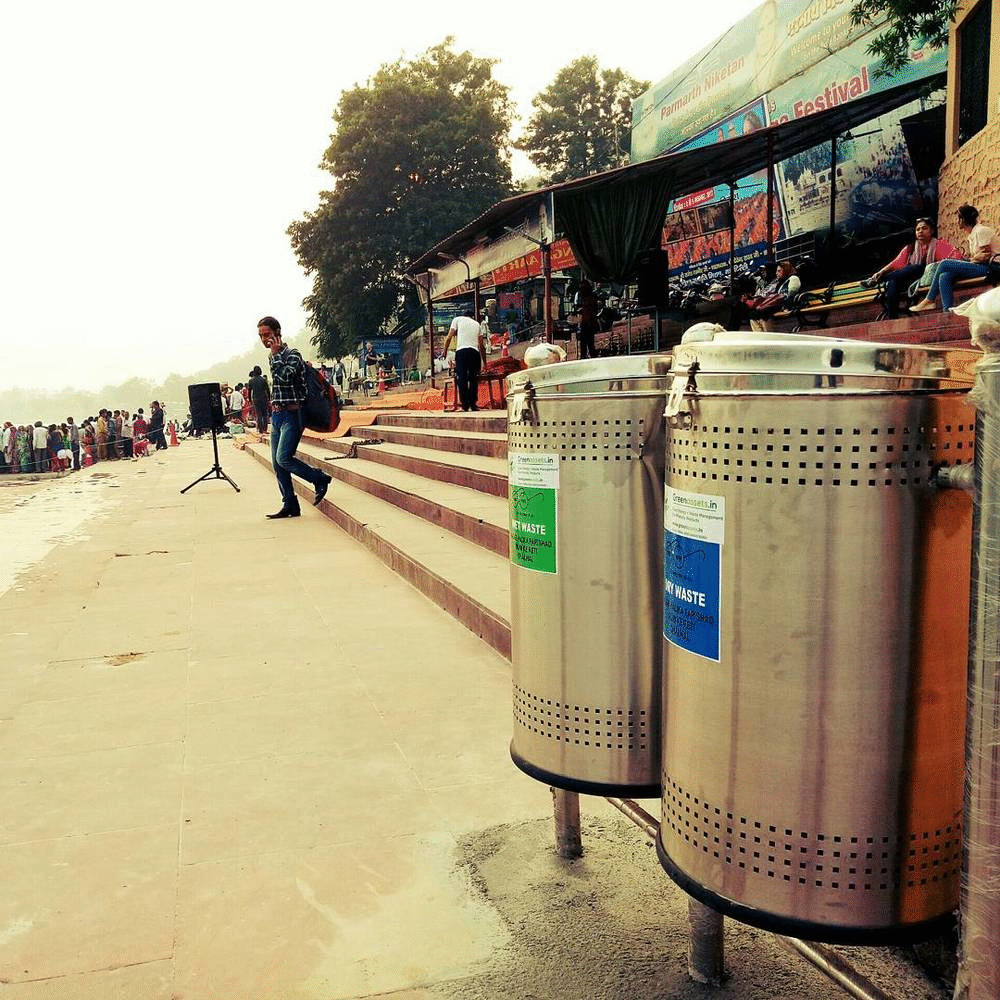






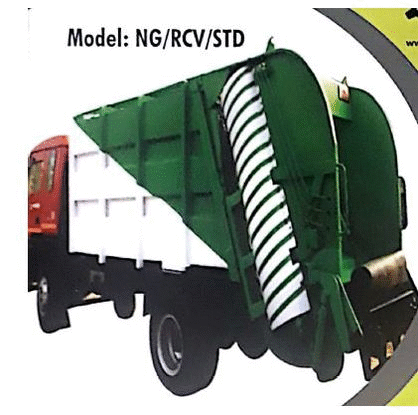

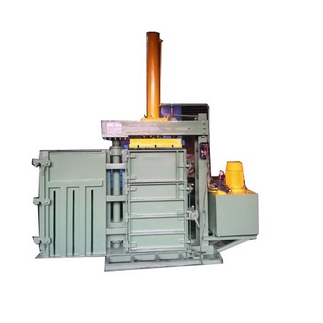






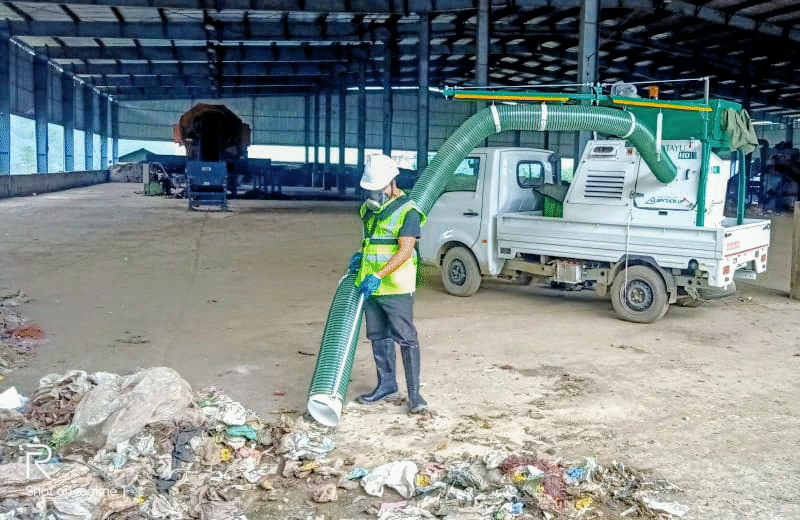




















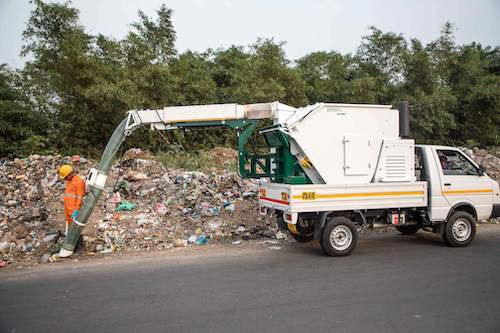


Amazing product for solid waste management